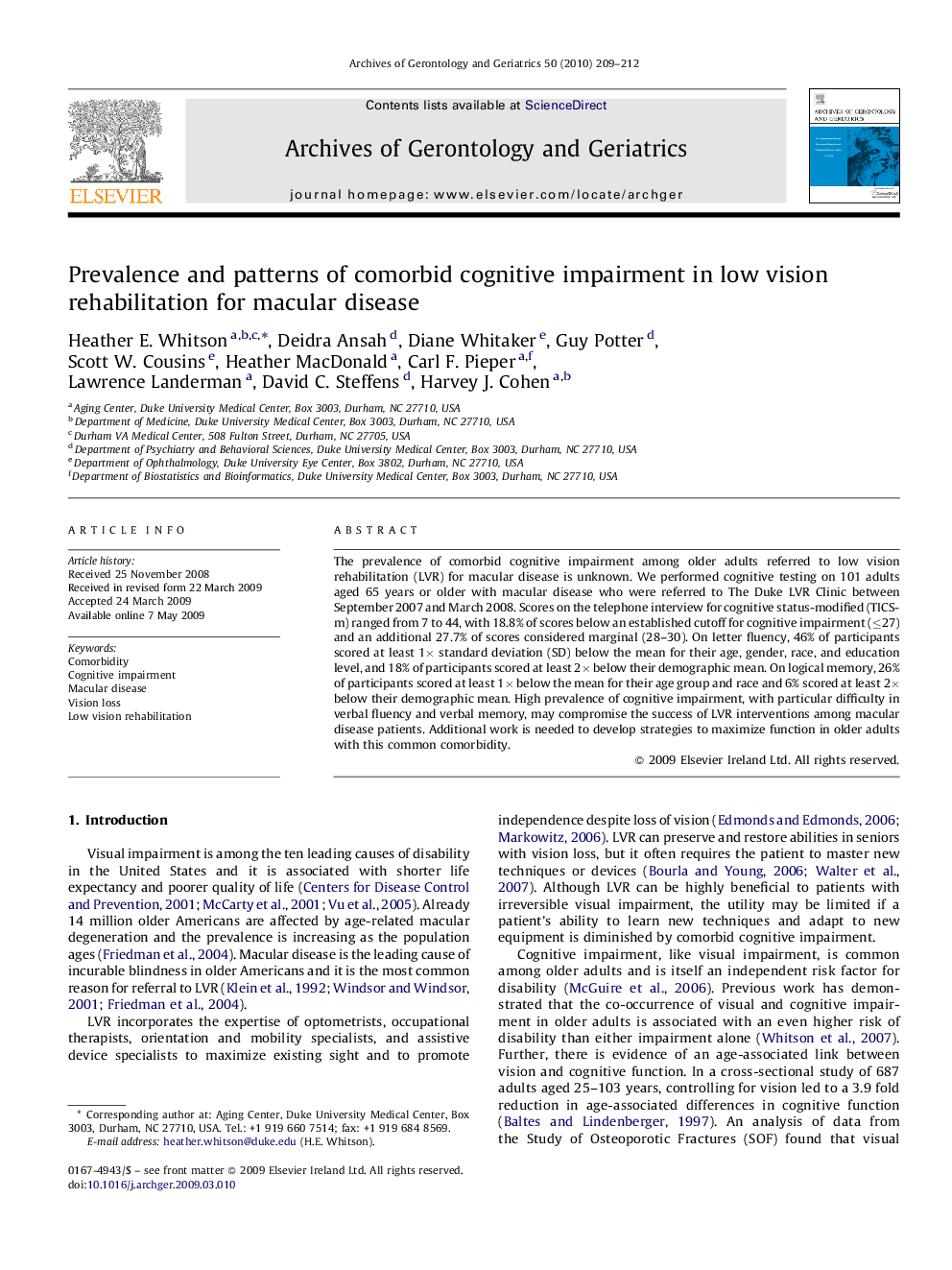| Article ID | Journal | Published Year | Pages | File Type |
|---|---|---|---|---|
| 1903760 | Archives of Gerontology and Geriatrics | 2010 | 4 Pages |
Abstract
The prevalence of comorbid cognitive impairment among older adults referred to low vision rehabilitation (LVR) for macular disease is unknown. We performed cognitive testing on 101 adults aged 65 years or older with macular disease who were referred to The Duke LVR Clinic between September 2007 and March 2008. Scores on the telephone interview for cognitive status-modified (TICS-m) ranged from 7 to 44, with 18.8% of scores below an established cutoff for cognitive impairment (â¤27) and an additional 27.7% of scores considered marginal (28-30). On letter fluency, 46% of participants scored at least 1à standard deviation (SD) below the mean for their age, gender, race, and education level, and 18% of participants scored at least 2à below their demographic mean. On logical memory, 26% of participants scored at least 1à below the mean for their age group and race and 6% scored at least 2à below their demographic mean. High prevalence of cognitive impairment, with particular difficulty in verbal fluency and verbal memory, may compromise the success of LVR interventions among macular disease patients. Additional work is needed to develop strategies to maximize function in older adults with this common comorbidity.
Related Topics
Life Sciences
Biochemistry, Genetics and Molecular Biology
Ageing
Authors
Heather E. Whitson, Deidra Ansah, Diane Whitaker, Guy Potter, Scott W. Cousins, Heather MacDonald, Carl F. Pieper, Lawrence Landerman, David C. Steffens, Harvey J. Cohen,
